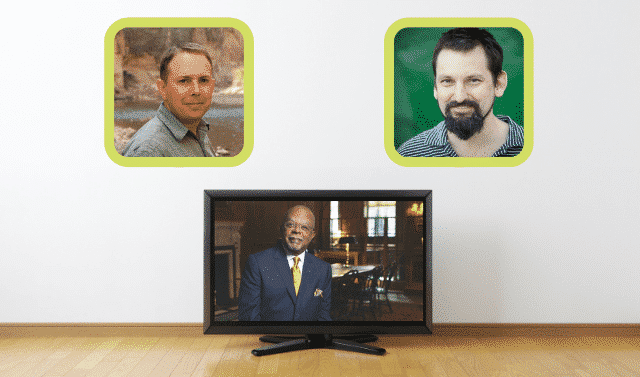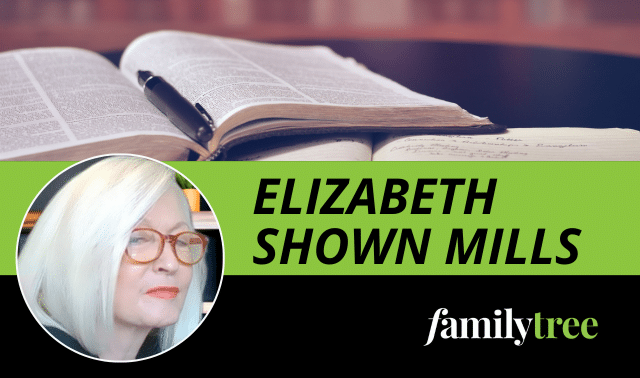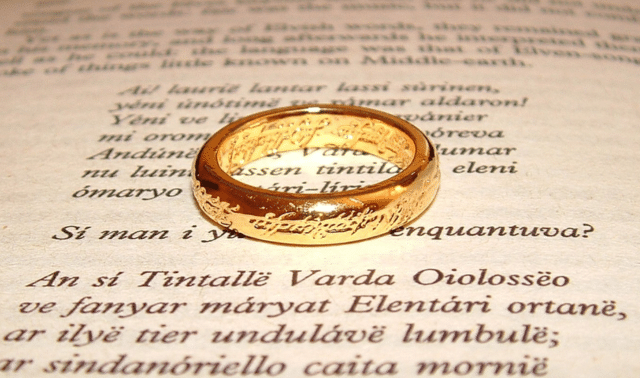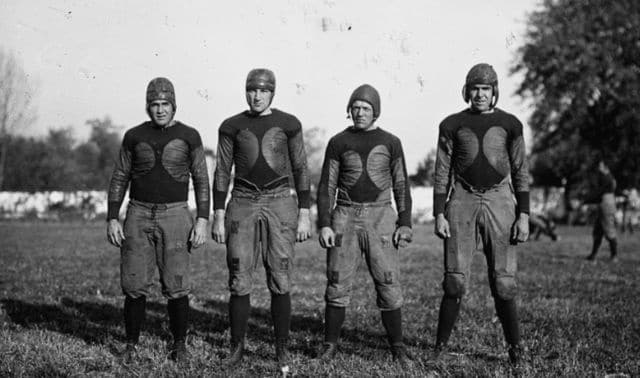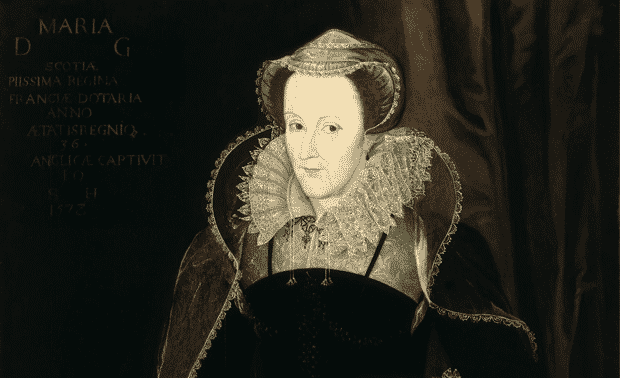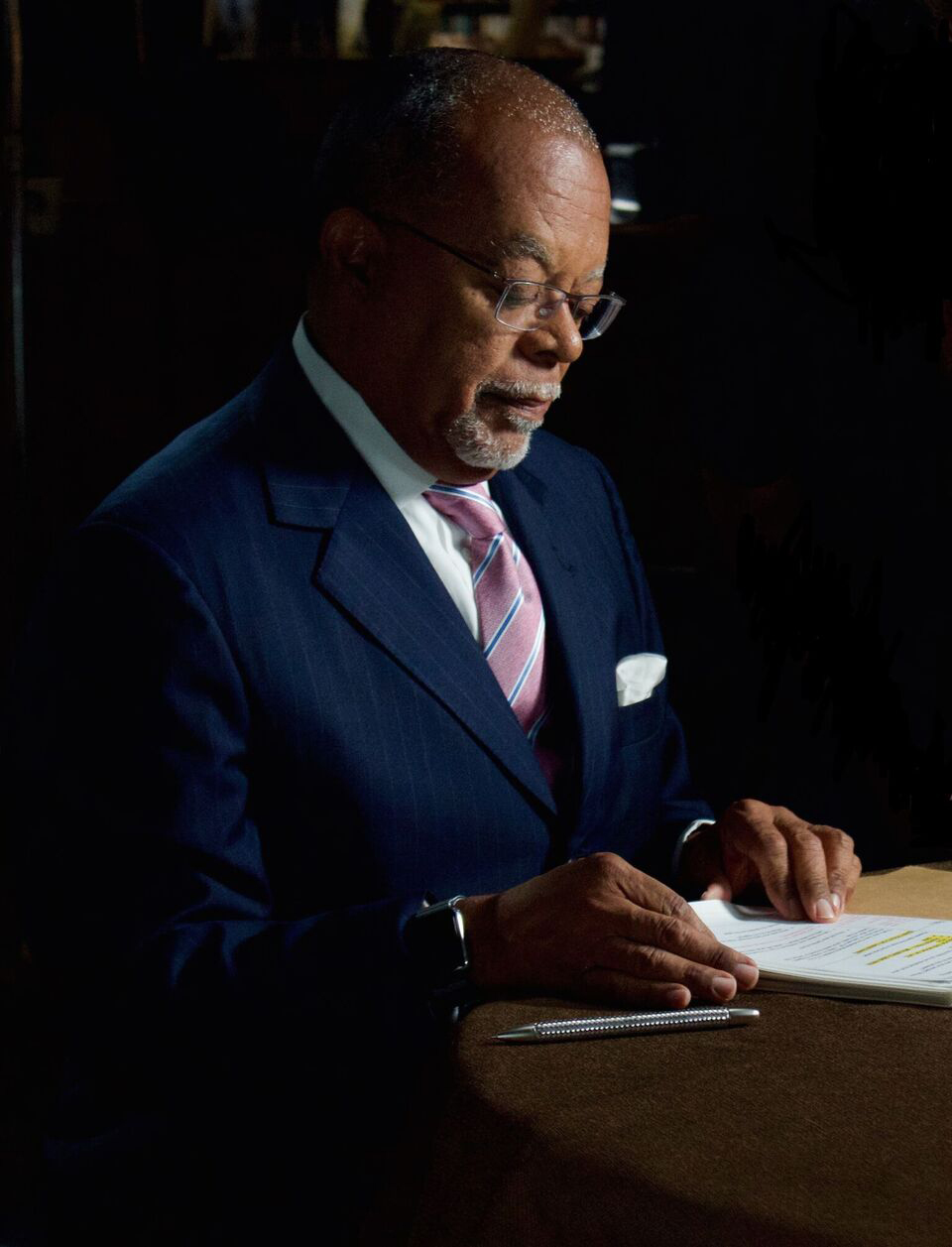
Henry Louis Gates Jr. is a busy man. But it’s for a happy reason: One of his favorite projects, “Finding Your Roots,” is still on air (PBS). We caught up with Gates on a Monday afternoon, just before season 5 started in Jan. 2019.
It was a rare day off for him, but from the interruptions that punctuated our conversation—including signing for deliveries for a dinner party he was hosting that evening—it seems that days off don’t include much rest.
Those didn’t distract him from the topic at hand. In fact, he was bursting with stories about the show’s newest season. You can probably relate: Just think of your most recent genealogy discovery and how anxious you were to share it. Multiply that by a couple dozen celebrity family trees and fantastic finds by some of the best researchers in the business (including pro genealogist Johni Cerny, of Lineages Inc., and investigative genetic genealogist CeCe Moore). Then you’ll know how Gates feels about getting to reveal family history surprises to some of today’s best-known entertainers, artists, journalists and political figures.
Spoiler alert! Gates gave us the scoop on season 5’s discoveries, how the descendants reacted—and how “Finding Your Roots” is an outgrowth of his own ongoing search for who he is. Now we’re just as excited to share these stories as Gates was to tell about them.
Family Tree Magazine (FTM): Tell us about the origins of “Finding Your Roots.” How did the show come to be?
Henry Louis Gates Jr. (HLG): Literally, the show’s origins go back to when I was 9 years old. It’s a long and indirect path, but I became intrigued with genealogy the day we buried my grandfather. My father took me up to his casket. I’d never been that close to a corpse before. We stood there looking at him and I was astonished at how white he looked. I couldn’t believe I could be descended from someone who looked that white.
Afterward my father took my brother and me to his family home and showed us his father’s scrapbook collection. My grandfather worked as a janitor at Cumberland National Bank. He was stealing these old bank ledgers and using them as scrapbooks. My father sat on the floor and opened one. He said, “You boys, look at this.” It was an obituary dated 1888: “Died this day, Jane Gates, an estimable colored woman.” He pulled her picture out and said, “This is the oldest Gates we’ve ever been able to trace and I never want you to forget what she looked like or her name.”
That night, the last thing I did before I went to sleep was look up the word “estimable” in my old red Webster’s dictionary. I read the definition and thought, “If she was ‘estimable,’ maybe I am, too.” The next day, I asked my father to buy me a composition notebook and I interviewed my parents about our family history. That’s how my love of genealogy was born. I was just trying to situate myself in relationship to this man who looked white and this “estimable colored woman” from whom we descended.
FTM: Let’s fast-forward several years. You’ve become a distinguished scholar of English literature and African American studies at Harvard University. How did your childhood interest in family stories re-emerge?
HLG: In 2000, I got a letter from Dr. Rick Kittles, a black man who was a geneticist at Howard University. It said something like, “Have you ever seen ‘Roots’ [the groundbreaking book and TV mini-series that galvanized a generation’s interest in genealogy]? We can now do in a lab with mDNA what Alex Haley did for himself in ‘Roots.’ We’re looking for volunteers.”
I picked up the phone and told him I would pay him to fly up and test my DNA. Like all African Americans, I wanted to know where I was from in Africa. Getting results took about six months and I kept calling, and finally I reached him. He told me it had taken so long because the results were so anomalous. I was descended from the Nubian people, an ancient people associated with the black pharaohs of the Nile. There were no African slaves from Nubia brought directly to America by way of the transatlantic trade, so that was puzzling.
A little later, I woke up in the middle of the night. I got this idea. I could combine these interests in genealogy and genetics in a TV show. I would get eight prominent African Americans and use the paper trail to go back into slavery and then do their DNA to take them back into Africa. It was an idea that came from heaven. I just had to raise 6 million dollars in order to do it. Through my friend Quincy Jones, I wrote a letter to Oprah Winfrey by snail mail, and I didn’t hear anything.
One Sunday I was watching football and Quincy called. On the line, I heard, “Dr. Gates, this is Oprah Winfrey.” She was calling to participate in the series. With that, I could go to different sponsors and get PBS support for the show that became “African American Lives.” It was a huge hit. Then I was asked, “How come you only do black people?” I decided to expand the brand after talking to PBS. We did “Faces of America,” and eventually that led to “Finding Your Roots.”
FTM: How has DNA testing changed the show?
HLG: We started filming “African American Lives” in 2005. There are a lot of things we can do with DNA now that we couldn’t do then. It used to be we’d start with the paper trail and go to DNA. But CeCe Moore’s brilliant genetic genealogy methodology, which she developed as she was working for us, means that now we can also start with a DNA match and triangulate backward to find a paper trail. That means people who were adopted have a much better opportunity to establish their biological identity.
This season we have a couple of astonishing DNA stories. Andy Samberg [of “Saturday Night Live” and “Brooklyn Nine-Nine”] came to us with a specific request. He wanted to know the identity of his mother’s birthparents, neither of whom she had ever known. She was adopted.
She was told her parents were both lawyers in California who died in a car accident. She found out as an adult that this was just a story. She wanted to know the truth. We looked for clues to identify Marjorie’s birth mother. A letter from the adoption agency said her great-aunt was a musician and singer in India, a clue that eventually led us to Marjorie’s mother, Ellen Phillipsborn, a graduate student in California who became pregnant.
Then we searched for Andy’s biological grandfather, and found him, too. Salvatore Maida was a Sicilian immigrant who was in the Navy in California during World War II. Ellen was working at a school in San Francisco where Salvatore took an art course. Marjorie was the baby born from that affair.
Andy brought his mother to the shoot, when we revealed all this to him. She sat with the producers. When Andy turned a page in his book of life, he was looking at her biological mother. Marjorie just wailed—a sound like it was a mixture of pain and anguish and relief and exhilaration all at once. We froze. She came out and looked at her mother’s picture and she just cried.
Then we connected the family. It turned out Marjorie has half-siblings living around San Francisco. They had a family reunion. The children of this man had a photo of him in a sailor suit at a bar with his girlfriend. No one had ever figured out who the girlfriend was. It was Ellen.
FTM: Tell us how things went with George R.R. Martin, author of Game of Thrones.
HLG: You know, George also used to write for “The Twilight Zone,” and there was always a twist with that. That’s what happened with his story—a twist.
George’s whole family narrative was based on a deep dark secret: that his grandfather left his grandmother to start a family with a new woman, and he severed ties with the one he left behind. George wanted to know more about his paternal grandfather, Louis Martin, who had done this dastardly thing.
Louis was Italian, so George’s DNA admixture results should have said he was at least 25 percent Italian. But when I showed him his results, it was like, ‘What’s wrong with this picture?’ because there was no Italian there. Instead, there was Ashkenazi Jewish.
Turns out Louis Martin was not in fact George’s biological grandfather. Instead of Louis cheating on the grandmother, it was the grandmother who had an affair with a Jewish guy. The whole story he’d been raised on—that the grandfather had betrayed them—was upside down. Grandma was the one who passed that story on. But like the brothers on the street say, “DNA don’t lie.” We tracked down descendants of Louis Martin and there was absolutely no match with George.
FTM: Sometimes you have to tell your guests difficult and surprising information. How do you handle that?
HLG: [Pause] Well, what’s the ultimate nightmare when researching your family history?
FTM: Discovering you’re not biologically related to your loved ones?
HLG: Yep. We found that nightmare. There’s a famous black radio talk show host named Joe Madison. He’s known as “The Black Eagle.” I’ve been on his show a million times. He kept bugging me about when I was going to put him on “Finding Your Roots.” Finally I said OK.
We’ve developed a DNA protocol that there are certain things you can’t tell a person for the first time while the cameras are rolling. I got a call from CeCe Moore who said Felix Madison was not actually Joe’s biological father. I called him on a Saturday morning and arranged to meet him. It’s a horrible thing to have to tell someone. I told him, “I have some bad news. If you hear it and decide you don’t want to be in the series, that’s fine. Your father is not your father.”
He was stunned, but he said he wanted to stay in the series. [Gates pauses.] I can’t reveal any more details: I’ll have to do that on camera. But I will tell you that through DNA, CeCe found Joe’s father. We learned that Joe’s grandfather was part of the infamous Tuskegee study on untreated syphilis. We also found that they descend from two Loyalists—one black, who ran away from slavery, and one white—who joined the British and fought against the Patriots during the American Revolutionary War.
FTM: Can you tell us anything about your discoveries for S. Epatha Merkerson, the actress from “Law & Order”?
HLG: We learned that she descends from slaves who were sold to a Louisiana planter in 1838. Her ancestors went on the auction block when Georgetown University Jesuits sold 272 enslaved people because they were running out of money. Because of this sale—because three generations of her family were sold on that particular day—we could take her slave ancestry back to the mid-1800s. … We arranged a reunion of descendants of all those slaves in New Orleans, and we filmed it.
FTM: In other interviews, you’ve said that Rep. Paul Ryan’s DNA test showed he’s 3 percent Ashkenazi Jewish, and that Florida Republican Sen. Marco Rubio has fascinating immigrant ancestry. What message do you want viewers to hear from these types of stories?
HLG: My ultimate goal is to show two things: almost all our ancestors originated from someplace else, so America is a nation of immigrants, willing or unwilling. And we’re all related under the skin, no matter how apparently different we are. In an era of anti-immigration and a lot of xenophobia, there are no more important lessons to learn: There’s no such thing as racial purity. We show that week after week after week, and we do it by telling stories about interesting people.
FTM: Sometimes television makes genealogy research appear quick and easy. That can feel frustrating to those of us with longstanding “brick walls” on our trees. What would you say to that?
HLG: Each of these stories takes months to research! And here’s a punchline about a story I began with. Remember Jane Gates, the “estimable colored woman” on my tree? I was never able to find that obituary again as an adult. We found two obituaries, but neither mentioned the word estimable. But I know I saw it; I never would have made that up.
I was preparing for a big speech at RootsTech 2018, and I was on a plane, and I sent an email to Dr. Kevin Burke, a senior story producer on “Finding Your Roots.” I asked him to do one more search for any obituary on Jane Gates. He happened to be online, and within 10 minutes he found three obituaries and sent them to me. I thought I was hallucinating when I read it. There it was: “estimable colored woman.” It just hadn’t been scanned yet. So it existed. The whole time I was right. My memory from the age of 9 had served me well.
Keep looking! Keep looking! Every day documents are being scanned. You might not find the paper trail today but you’ll find it eventually. So many things remain to be digitized. Even when we think the research is done, there’s always the possibility there will be one more document.
FTM: Speaking of which, we heard that an eleventh-hour discovery led to a last-minute change in the final episode of season 5. It was to reveal more on Jane Gates’ roots. What happened?
HLG: CeCe Moore has finally found the identity of the white man who fathered Jane Gates’ children, and it looks like she’s found his father, too. We need to do more work, so it will not be in season 5. But it’s coming soon.
Related Reads
A version of this article appeared in the January/February 2019 issue of Family Tree Magazine. Last updated: January 2025

